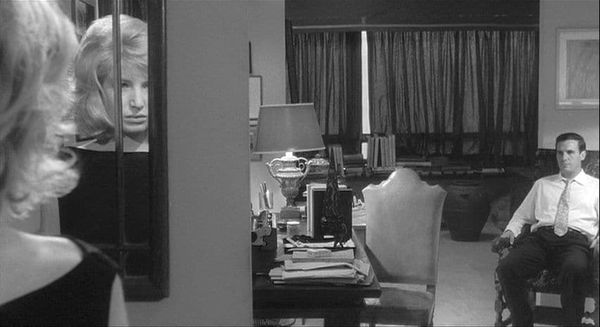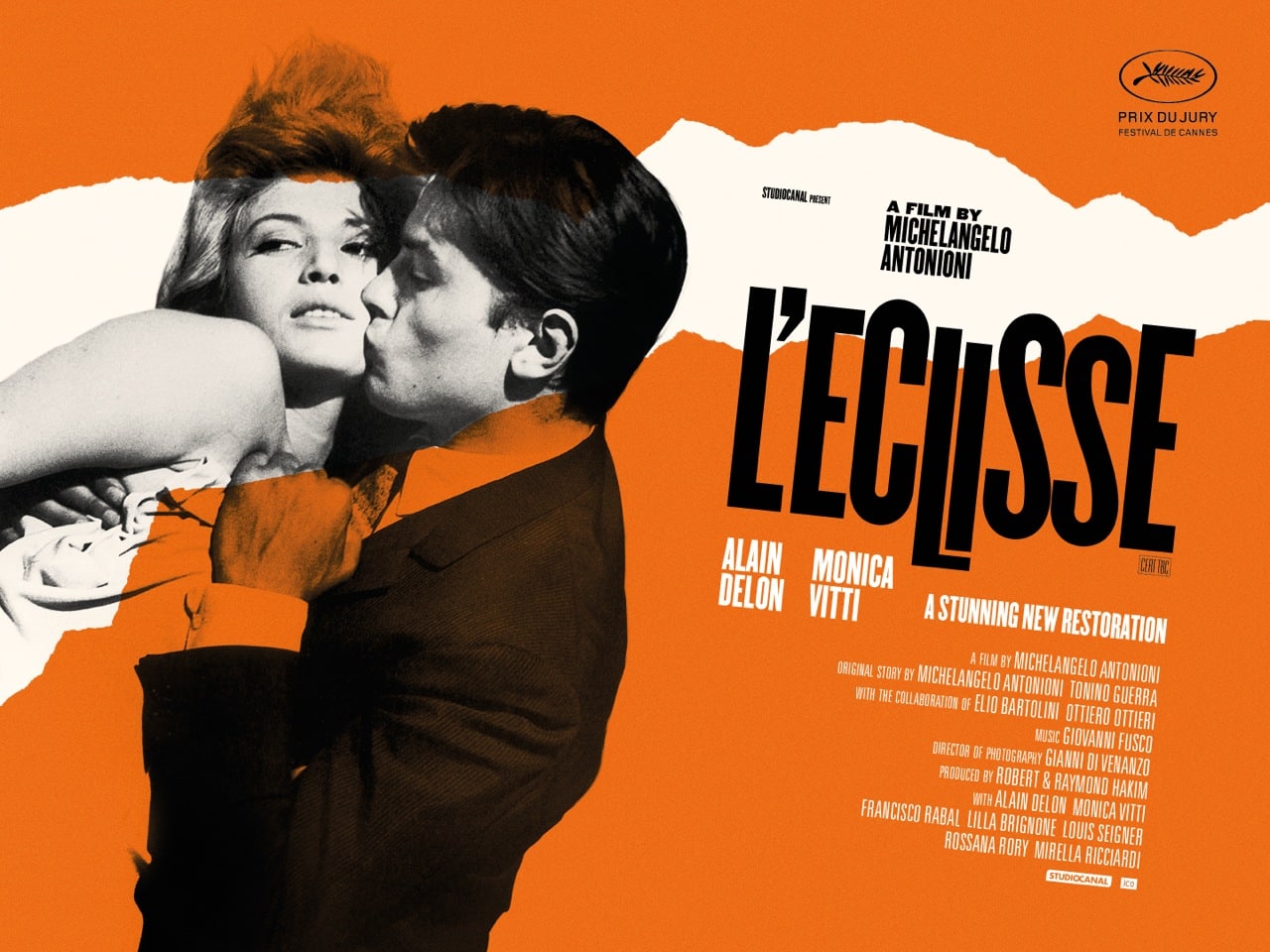Eye For Film >> Movies >> L'Eclisse (1962) Film Review
L'Eclisse
Reviewed by: Amber Wilkinson

The architecture of buildings, society and relationships grow up against one another in Michaelangelo Antonioni's moody and broody tale of one love lost and another that may, or may not, be gained. The last part of a loose trilogy after l'Avventura and La Notte, he creates a place where the construction of emotions proves as immutable as the walls of the spaces his characters inhabit. Whispers of winds - of change, perhaps, turbulence, or at least a breeze to ease the torpor - blow through this snapshot of the life of Vittoria (Monica Vitti) but, like so much in her world, they struggle to do more than skim the surface.
Antonioni is interested in the end of things and, in fact, the film has a slightly off-kilter post-Apocalyptic quality, particularly in its gripping last 10 minutes when it seems its characters may each be the last person alive on earth. Silence and ending - though not completion - also dominate the first few minutes of the film. Vittoria fiddles with items on a table, a fan turns lazily as her soon-to-be-ex-fiance (Francisco Rabal) stares into space, unable to construct a sentence that will stop her from leaving him. As Samuel Beckett would say, words fail.

The difficult transaction and longing cultivated in this scene, run through the film, a reflection on an Italian society where cash and consumerism have come to dominate over connection and satisfaction. At the stockmarket where Vittoria's mother goes daily, it is money that changes hands, with the good looking, permanently on the move Piero (Alain Delon), one of its players. On a narrative level, L'Eclisse is simple enough, unfolding the story of Vittoria and Piero's growing attraction and asking whether they will commit - "I wish didn't love you. Or that I loved you much more," says Vittoria, encapsulating the sense of being unable to settle for what she has. Antonioni is interested in abstract emotions, particularly those that his characters struggle to articulate and the rooms that he lets them wander are used as a way of emphasising their loneliness and indifference. He is also aware of our emotions as an audience, toying with our expectations at moments when, for example, he includes a character we briefly believe to be one of the central pairing but who turns out not to be.
Antonioni is in no hurry, but almost every frame of the film is a beautifully constructed joy, from the contrasts of light and shadow hinted at by the eclipse of the title to the way he and cinematographer Gianni Di Venanzo emphasise the languidness of Vittoria against the almost perpetual motion of Piero or 'trap' the characters in a mirror or framing device. One scene of 'blackface' jars in the modern era - although it is deliberately used to emphasise bigotry. Ultimately, the idea of a world in which characters may find more comfort in alienation than connection is something that speaks as much to our society as it reflects the universe of 1960s Italy.
Reviewed on: 03 Sep 2015

















